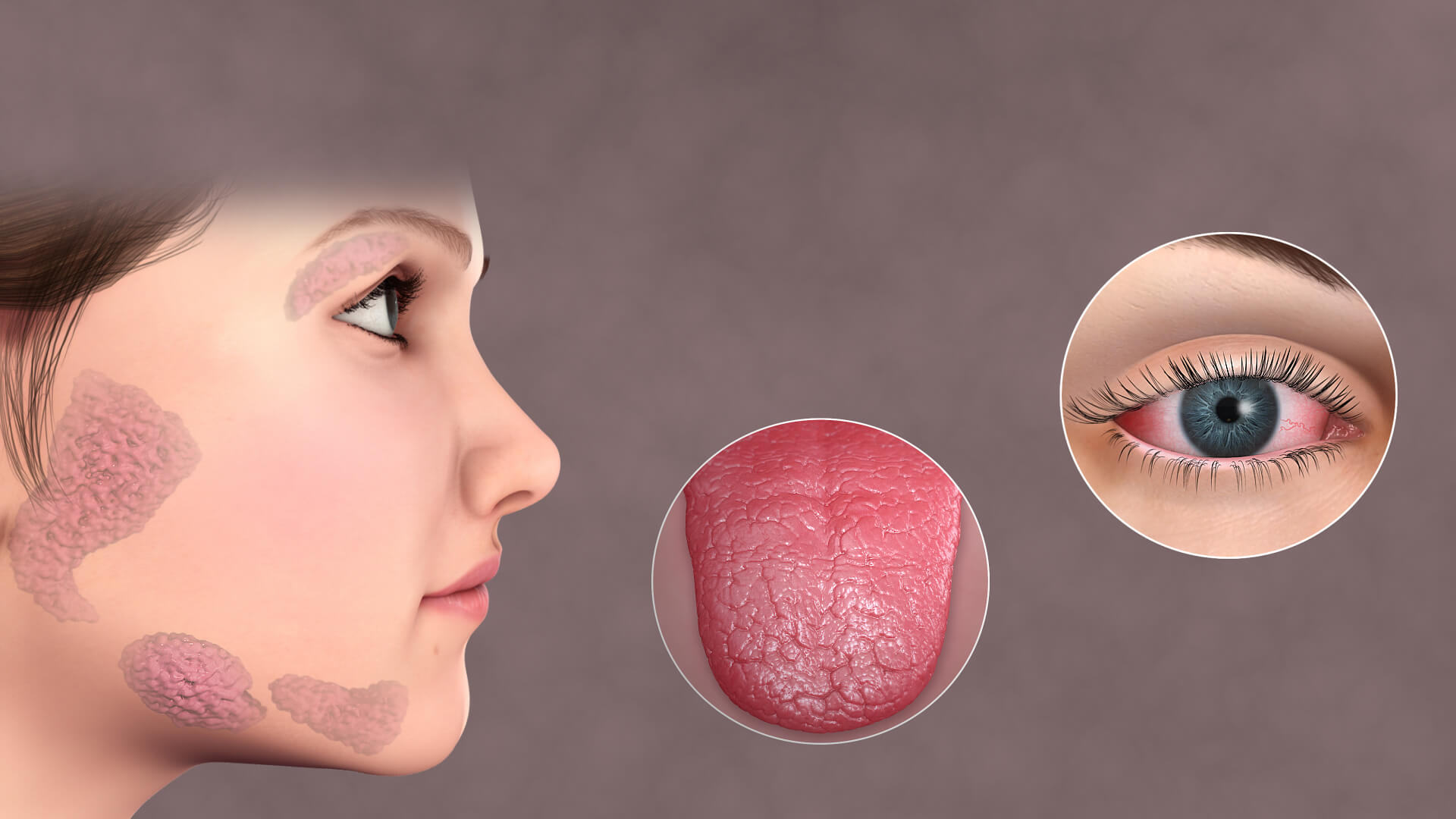
Sjögren’s Syndrome is a chronic autoimmune disease. It affects millions worldwide. The condition primarily targets moisture-producing glands. This leads to dryness in various body parts. It can also impact organs. Understanding this syndrome is vital. Early diagnosis improves outcomes.
Primarily Targets Moisture-Producing Glands
The body has many glands. Some produce tears. Others make saliva. Sjögren’s syndrome attacks these glands. The immune system mistakenly targets them. This damage reduces moisture production. Dry eyes are a common symptom. A dry mouth is another frequent complaint.
Beyond Just Dryness
Sjögren’s is more than dryness. It can affect many systems. Joints may become painful. Muscles can feel weak. The skin might become dry and itchy. Fatigue is a major issue. Many patients experience extreme tiredness. This can disrupt daily life significantly. Nerve issues can also arise. Kidneys and lungs may be impacted. The thyroid gland can also be affected.
The Immune System’s Misdirection
Normally, the immune system protects us. It fights off invaders. Viruses and bacteria are examples. In autoimmune diseases, it errs. It attacks healthy body tissues. Sjögren’s is one such condition. This misdirection causes inflammation. Inflammation leads to the symptoms seen.
Causes Remain Largely Unknown
The exact cause of Sjögren’s is unclear. Scientists are still researching it. Genetics likely play a role. Certain genes may increase risk. Environmental factors could also contribute. Viral infections are sometimes implicated. Hormonal influences are also considered. More studies are needed to confirm.
Diagnosing Sjögren’s Syndrome
Diagnosis can be challenging. Symptoms often mimic other conditions. Dryness might be dismissed easily. A doctor will conduct tests. Blood tests are often performed. They check for specific antibodies. A lip biopsy might be done. This examines salivary gland tissue. Eye tests measure tear production. Early diagnosis helps manage the disease.
Managing Symptoms Effectively
There is no cure for Sjögren’s. Treatment focuses on symptom relief. Eye drops help with dryness. Artificial tears are widely used. Oral rinses can ease dry mouth. Medications stimulate saliva flow. These provide some comfort. Regular dental care is crucial. Dry mouth increases cavity risk.
Medications for Systemic Issues
When organs are involved, other drugs are used. Anti-inflammatory medicines help. Immunosuppressants may be prescribed. These calm the overactive immune system. They reduce inflammation in organs. Pain relievers manage discomfort. Each patient’s plan is unique. It depends on their specific symptoms.
Impact on Daily Life
Sjögren’s can greatly affect life. Chronic pain is common. Persistent fatigue is debilitating. Daily activities become harder. Eating and speaking can be difficult. Vision problems may occur. Social interactions can be challenging. Emotional support is very important.
The Role of Lifestyle Adjustments
Certain habits can help manage. Drinking plenty of water is vital. Avoiding dehydrating substances helps. Caffeine and alcohol can worsen dryness. Humidifiers add moisture to air. Good oral hygiene prevents decay. Regular exercise can improve energy. A balanced diet supports overall health.
Sjögren’s and Other Conditions
Sjögren’s often co-occurs. It can appear alone. This is called primary Sjögren’s. It can also accompany other diseases. This is secondary Sjögren’s. Rheumatoid arthritis is common. Lupus is another associated condition. These connections add complexity.
Research and Future Directions
Scientists continue their work. New treatments are being explored. Gene therapy shows promise. Biologic drugs are under investigation. These target specific immune pathways. Improved diagnostic methods are sought. The goal is better patient outcomes. Research provides hope for the future.
Psychological Well-being is Key
Living with a chronic illness is tough. Stress can worsen symptoms. Managing emotional health is crucial. Counseling can offer support. Support groups provide community. Sharing experiences helps cope. Mindfulness practices may reduce stress. Focusing on overall well-being matters.
Protecting Your Vision
Dry eyes need constant attention. Untreated dryness can harm vision. Regular eye doctor visits are essential. Special plugs can block tear drainage. This keeps more moisture on the eye. Prescription eye drops may be used. Protecting your eyes is a priority.
Maintaining Oral Health
Dry mouth is a serious concern. It increases dental problems. Cavities form more easily. Gum disease risk rises. Regular brushing and flossing are a must. Fluoride treatments protect teeth. Frequent dental check-ups are very important. Good oral hygiene lessens complications.
Living Well with Sjögren’s
It is possible to live well. A proactive approach is best. Work closely with your doctors. Follow your treatment plan diligently. Educate yourself about the condition. Join support networks for strength. Focus on what you can control. Adapt and thrive despite challenges.
Sjögren’s Syndrome profoundly impacts moisture-producing glands and various organs, requiring comprehensive management for improved quality of life.
